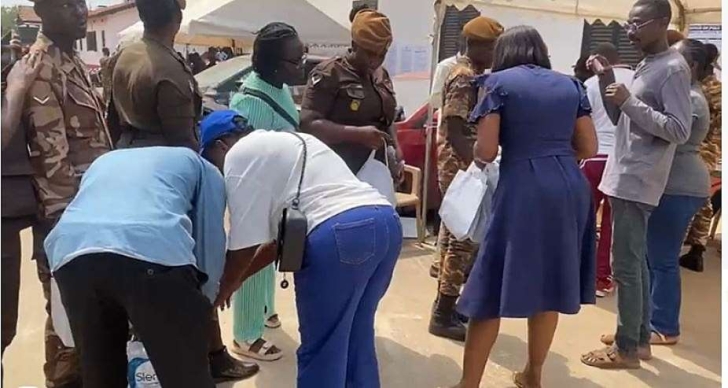Three key civil society organisations in in Ghana have raised concerns over alleged vote buying ahead of Election 2024.
According to them, both the opposition National Democratic Congress (NDC) and the governing New Patriotic Party (NPP) have been accused of engaging in vote buying.
They have therefore cautioned that such actions could undermine the credibility of the upcoming general elections.
The Ghana Integrity Initiative (GII), Ghana Anti-Corruption Coalition (GACC), and the Ghana Centre for Democratic Development (CDD-Ghana) issued the concerns in a press release dated December 3, 2024.
According to them, these practices breach Sections 33 and 34 of the Representation of the People Law, 1992 (PNDCL 284), which prohibit bribery and treating during elections.
The statement highlighted specific allegations of vote-buying in the Okaikoi South constituency, where the NDC’s Ernest Adomako is alleged to have distributed chickens, money, and bags of rice to voters on December 1, 2024.
Similarly, in Ayawaso West Wuogon, the NPP’s Lydia Alhassan is reported to have distributed oil and bags of rice on November 27.
On December 2, during the special voting, food packs were reportedly given to voters queuing in Ayawaso West Wuogon, allegedly by the incumbent MP, Lydia Alhassan.
The three CSOs have therefore stressed that such actions could undermine public confidence in the electoral process and weaken democratic governance.
The groups called on law enforcement agencies to investigate the allegations and take legal action against any individuals found culpable.
They noted that ensuring accountability is essential to deterring similar actions in future elections and protecting the integrity of Ghana’s democracy.
The civil society groups also urged political parties to distance themselves from any vote-buying activities and demonstrate a commitment to ethical conduct during the election period.
They called on media outlets, faith-based organisations, and other civil society groups to intensify voter education, particularly on the long-term impact of accepting electoral inducements.
“The strength of Ghana’s democracy relies on all stakeholders rejecting corruption and upholding electoral integrity,” the statement read.

